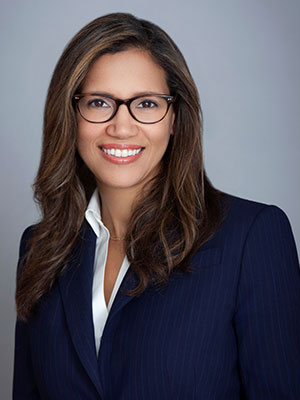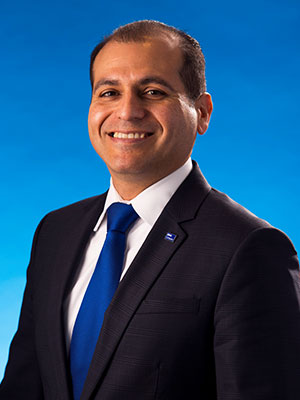
As the Latino population in the United States continues to grow, reaching more than 60 million in 20201, PNC wants to grow alongside it to meet the nuanced banking needs of Latino residents in the communities it serves.

Dorothy Abreu, senior vice president of public finance in PNC’s Chicago market, and J. Reymundo Ocañas, southwest territory executive for Community Development Banking, believe in the importance of finding common ground with members of these communities through language and cultural understanding. These are some elements that can help create an environment of connectedness and trust.

Ocañas, who is based in Houston, recently joined PNC after its acquisition of BBVA USA. He and Abreu share their thoughts on PNC’s commitment to effectively serve and engage this diverse population – whether they are new to banking, budding and established entrepreneurs, homebuyers or looking for ways to pay for college.
How do you see PNC’s focus on serving its communities manifest in Latino communities?
Abreu: To reach the Latino community effectively, we must reach the entire continuum of that community. That means reaching the wealthy as well as those who have not yet acquired wealth. The socioeconomic factors that affect many Latino communities mirror those that affect all Americans, just with greater sensitivity to the disparity that exists within many low- to moderate-income (LMI) neighborhoods.
I am a firm believer that education is the catalyst that drives lasting change, and PNC executes financial education well through both our Organizational Financial Wellness partners and our Workplace Banking platform, as well as through our Community Development Banking consultants who work with our retail branch network and community partners.
I find most exciting our fleet of mobile branch units that bring banking services and ATM access into communities that are often the most disenfranchised from mainstream banking. For many of the residents in the predominantly Latino neighborhoods visited by these mobile branch units, Spanish is their primary language, and we’ve found ways to meet their needs.
Ocañas: PNC’s acquisition of BBVA USA continues a long legacy of focusing on Latino communities, primarily because of our past connection to BBVA S.A. in Latin America and our locations in the Sunbelt region – particularly California, Texas and Florida, which happen to be the states with the largest Latino populations2.
There’s a palpable Latino flavor that we’re able to bring into the community with employees who not only know and understand the array of cultures associated with Latino populations, but who can build trust through relationships with organizations that serve these populations and influential individuals within them.
What banking needs are specific to members of Latino communities?
Ocañas: The needs we primarily see are nuanced – things like being able to access information, materials and even account information in their native language.
The Latino community is not homogenous. Not everybody needs information in Spanish or bankers who are capable of communicating in the language, but it’s certainly helpful for those early in their immigration journey.
I grew up as a first-generation Mexican American along the Texas and Mexico border, and I’ve seen firsthand that the area has a large number of unbanked and underbanked members of the population. That isn’t the case for everyone, but it is a reality for many. Additionally, there is often minimal access to smartphones or the internet at home, and that creates disconnectedness and a lack of access for some.
All of this is part of how we work to help families on their financial wellness journey, wherever they may be. Ultimately, our goal is to help them move beyond basic accounts to savings, investments, home ownership and small business needs.
Abreu: If there’s anything I’ve learned through the challenges of the pandemic, it’s that there is far more that unites us than divides us. In that spirit, I believe the challenges facing Latino communities mirror many of the challenges facing any individual or family seeking to make the United States their home. Many individuals immigrating to the United States do so because of chaotic political and economic conditions, and that can translate into a distrust of institutions.
What we have found within Chicago’s Latino market is that the availability of materials in their native language goes a long way to breaking down barriers while establishing trust in the service or product being offered.
We also know that individuals in our Latino markets value relationships built on trust, receiving clear and transparent information and the space to make decisions they believe are right for themselves and their family.
How does PNC’s focus on Latino communities make us stronger?
Ocañas: I think there are great financial opportunities with this demographic as they make up a significant part of the population with young families who are seizing opportunities to achieve financial well-being. For the purposes of the employee experience, there’s great opportunity for cultural exposure as we continue to work with people from different communities and backgrounds across a new coast-to-coast footprint. That employee experience contributes to how we serve our customers. I also think building relationships with Latino-serving nonprofit organizations shows us the impact that can be made by PNC in the communities in which we live and work.
Abreu: When people feel connected, they build roots, and that deepens loyalty and longevity to one another, ultimately making PNC and the communities we serve much stronger.



